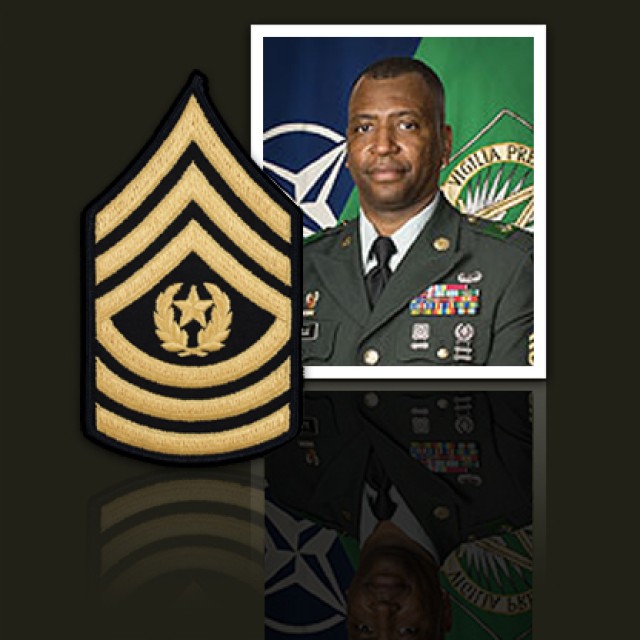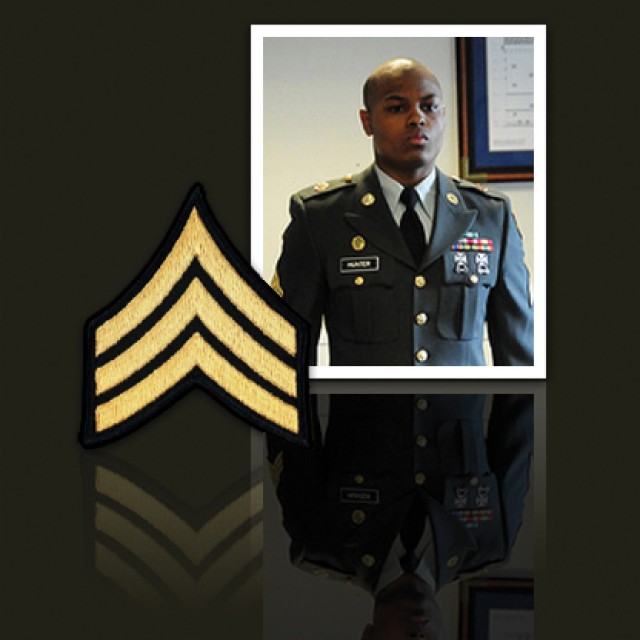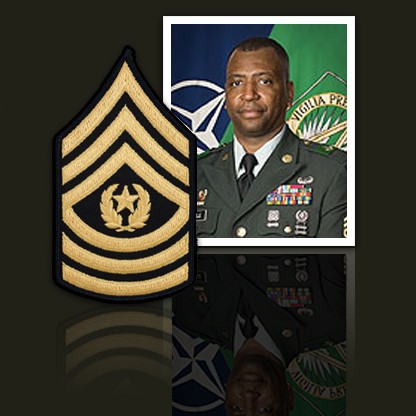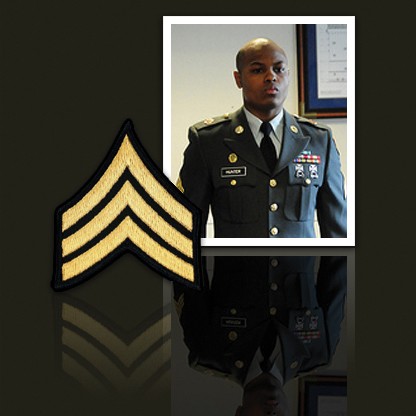CHIAfE+VRES, Belgium - The day a Soldier becomes a member of the noncommissioned officer corps, is the day he or she becomes a leader of Soldiers. It's the moment when a Soldier accepts and honors the words of the NCO creed: "All Soldiers are entitled to outstanding leadership; I will provide that leadership."
Becoming a leader, however, is a journey of life, experiences and the leadership of others.
A Soldier recently recalled that he was disillusioned when he showed up at his first duty assignment in Germany. He expected it to be like his training environment and he said it was totally different. "My second year, I had a new platoon sergeant, and his approach changed my view. He influenced me to stay in."
The Soldier who experienced that doubt and that change in motivation is Command Sgt. Maj. Michael Bartelle, the senior noncommissioned officer for NATO's Allied Command Operations. He's now worn the uniform for 30 years and said that platoon sergeant influenced his leadership philosophy.
"He was an influential leader who knew how to motivate each person individually. It's a technique that I use to this day," he said.
Sgt. Dujuan Hunter has only been in the Army for five years, but his NCO blood goes back much further. His dad retired from the Army as an NCO after 20 years, and his grandfather recently deployed with the Army Reserves to Afghanistan.
"When I enlisted I couldn't wait to become an NCO - that's the backbone of the Army," he said. "I don't want to set a goal at 20 years because I may do more than 20."
Both Bartelle and Hunter have grown as leaders because of the Year of the NCO. The difference - command sergeant major was a recipient of the original program's initiatives 20 years ago.
In 1989, the Secretary of the Army, Hon. John O. Marsh, declared it the Year of the NCO, and an NCO Leader Development Task Force created an action plan that linked NCO promotions to schools like the Primary Leadership Development Course and Sergeants Major Course. It also led to the Army NCO Guide and The NCO Journal.
Bartelle is thankful he was a recipient of the initial program and said the programs this year will affect the next generation of NCOs - NCOs like Hunter.
This year's initiatives focus on education, leadership, physical fitness and pride in service. Hunter is a model of all four. The Military Police Investigator for the USAG Benelux has completed 33 college hours and is pursuing his bachelor's degree in Psychology.
He recently demonstrated his commitment to leadership and physical fitness when he was named the 2009 USAG Benelux NCO of the Year and was the runner-up at the IMCOM-Europe level.
"My leadership philosophy is driven by the Army Values and NCO Creed. There's only one way to be an NCO and that's following the creed. I want the Soldiers I support to be more effective than I am. I want them to share what they learn with their Soldiers so we continue to have an effective Army," he said.
And his pride in service can only be described in his own words, "I have the same passion for the military from the first day I enlisted."
It's empowerment like that that Bartelle said he hoped to promote when he came to SHAPE in 2006, but his leadership went deeper than the ranks of the U.S. Army. In 2008, he helped launch the Year of the NCO for NATO.
"We established the year to promote continuity of NCOs throughout NATO and to highlight the aspects and importance of NCO leadership," said Bartelle. He said the program initiated some positive changes and that some militaries are starting to add the posture of enlisted development.
"It's especially evident in our current conflict that execution is more decentralized - smaller units, smaller teams - at the heart of that is the noncommissioned officer. Platoon leaders have a role, but the one with the experience, the one that provides training is that NCO. That's why it's important to promote this because for the foreseeable future, that's how we're going to pursue armed conflict," he said.
Bartelle added that empowering NCOs is not just about training enlisted Soldiers. He said it starts at the top.
"We all work for the officers. We want to make sure they're aware of the asset that they have on hand, which is experience. I believe once that occurs, we'll be able to fill some of the operational gaps we have by utilizing the resources we have on hand."
For today's current NCOs, Bartelle said they should "learn as much as they can about what they do and as much as they can about the institution. Once that occurs, they can clearly fit and they can better execute their responsibilities."
Hunter is doing just that. Working at the Benelux involves interacting with a lot of high-ranking officers, NCOs and civilians. Unlike some Soldiers, he is not intimidated by that, instead, he sees it as an opportunity for mentorship.
"It prepares you more for being a more effective leader. I've given briefings to senior noncommissioned officers and senior officers," said the 23-year-old. "It makes you a more effective speaker. It's a good experience."
Now that Hunter's reached his goal of becoming an NCO, he said his next goal is to stay focused on being a better NCO than he is now.




Social Sharing